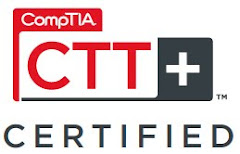I recently returned to the pool to start working out again. I swam competitively for many years and then coached for several more. After a warm-up swim, I did what I had done for nearly every workout I've ever been through; I swam a set of nothing but stroke drills. Stroke drills allow you to focus on one or two specific aspects of a stroke allowing you to make small corrections to improve your swim. After the drills it was on to the meat of the workout and ending with a warm down. This structure really got me to thinking about how I structure my standard workday. Specifically, what drills to I do before moving into the hustle and bustle of the day?
Every job I can think of, from software developer to Human Resources Generalist to accountant to mechanic, has a set of core fundamental skills that are required to be able to do the job well. Many of us perform those basic skills without ever even thinking about them. I'd bet that it would probably take some serious thinking to even identify what some of those skills are for some of us. For example, in my job as an Application Developer there are some basic skills that I take for granted. I have to write, perform logical operations, type, give presentations, use email, instant messaging and several other tools to do my job. But how much time do I spend each day doing anything to improve my skills in any of those areas? Like most people, not much.
The coach in me is seeing the folly in this lack of drills. Even Peyton Manning, a great quarterback, runs through drills to improve his passing. What does your standard, everyday worker do? They jump right into the main workout.
Take some time today and try to identify some of the basic skills you use every day. Tomorrow, challenge yourself to spend part of the start of your day reinforcing some of those basic skills. Do this every day, and it will make a difference. I'd love to hear how it goes.

